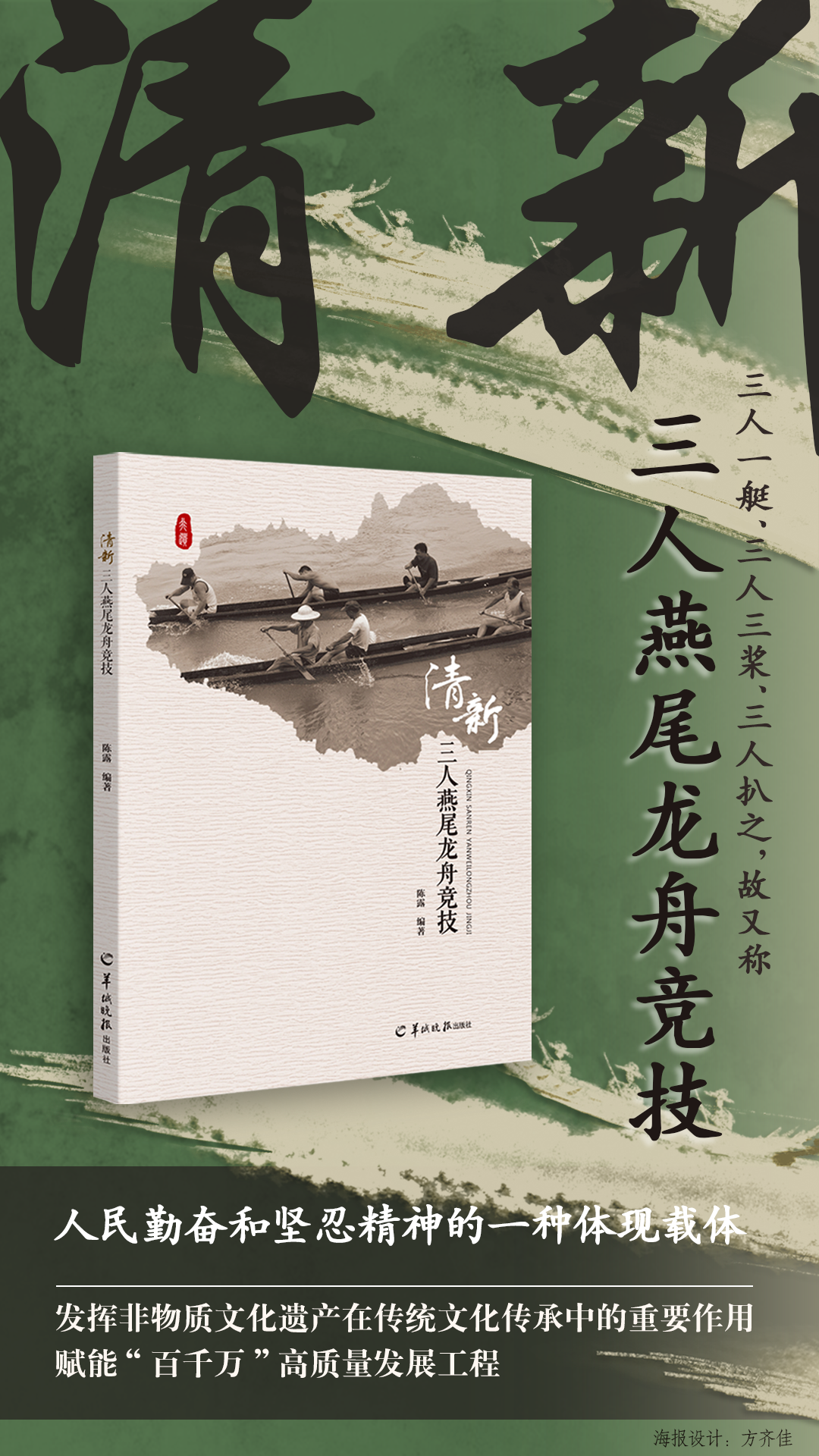
As the Dragon Boat Festival approaches, the drums of the dragon boats drift in every corner of the land of Guangdong with the fragrance of rice dumplings, and the lively “Dragon Boat Season” gradually kicks off. Among the many dragon boats of different shapes, the “Swallowtail Dragon Boat” has become the most unforgettable memory of fresh people with its unique local characteristics. Regarding the origin of “three-person swallow-tailed dragon boat racing”, although the “Qingyuan County Chronicle of the Republic of China” stated that “there are also small boats, and three or five people cut them off, and there is no dragon shape. This is purely a play of fighting power and a tradition of the Cinema state”, it was found through field investigation that its formation was related to the unique local geographical environment and folk origin.

The origin of “three-person swallowtail dragon boat racing”Babaylan has many legends, and the representative ones are like the following four.
1. The Origin of Labor
The Huainanzi·Qi Su Xun” says: “Hu people are convenient for horses, while Yue people are convenient for boats.” In ancient times, Lingnan was mostly water network areas. People often used boats to travel, and used boats as production tools and communication tools. People row and compete in catching fish and shrimps or leisure, and integrate entertainment in labor production and leisure. This is the prototype of the ancient ferry of “three-person swallowtail dragon boat racing”. Komiks
Shantang Town is close to the Beijiang River and is located in a low-lying state. It is mostly continental, with a water network and floods every year. Whenever the rice harvest season is over, it is mostly during floods. In the sixth year of Guangxu in the Qing Dynasty, the Qingyuan County Chronicle said: “The continent was baptized and drought, but it was more likely to be drought. BabaylanWhen the river overflows, Komiks will suffer great losses.” In order to facilitate the harvest of rice and other crops, ordinary people can only travel to the fields with a small boat and reach out to harvest rice and crops exposed to the water. Over time, in order to grab food with the God of Heaven and reduce losses, the Babaylan spontaneously formed rowing activities between the village and the Cinema village.
2. The Origin of the Boat Soldier
Shantang Town, Qingxin District, Shijiao Town and Longtang Town in Qingcheng District, are located in the middle and lower reaches of the Beijiang River. Babaylan is the throat of the waterway. During field surveys, we listened to stories from local elderly people, saying that this kind of small boat was a boat that sailors (boat soldiers) used to ride in the old days. There were few people and the boat was fast, so it was easy to attack the enemy. The locals introduced that this was related to the Saihe boat, and it was also related to the Qin Dynasty and the Western Han army’s march to the south to attack Nanyue. The fresh “three-person swallowtail dragon boat” is similar to the “five-person dragon boat” in the Pearl River Delta. It is similar to the “three-five-person dragon boat” in the boat type, materials, and competitive style of the Babaylan. It is the same as the “three-five-person dragon boat” recorded in the version of the Qingyuan County Chronicles of the Republic of China. The former three people took them off and were active in the middle and lower reaches of the Beijiang River. The latter group is in groups of five, and is popular in Foshan and Zhongshan areas, especially in Baini Town on Xijiang.
Does this long-shaped boat “three-five-man dragon boat” interact with the culture of Beijiang and Xijiang in two directions?Whether the exchange is related to the Southern Ark War during the Qin and Han Dynasties still needs to be further studied.
3. The Origin Theory of Welcoming Gods and Eliminating Ghosts
Most of the villages in Shantang Town are built next to the inland river. In ancient times, whenever floods occurred, “water ghosts” became the main culprit that endangers life. In order to drive away the “water ghosts”, the village spontaneously organized a “swallowtail boat ghost-driving team” between the falls. Young and middle-aged people joined the battle, supporting their own swallowtail boats to drive away ghosts from the upper reaches of the river to the lower reaches, and set off a large number of firecrackers to drive away scares and cheer.
4. The Origin of Games
Ancient games are an important part of the origin of human culture. The three-person swallowtail dragon boat racing event has the original game elements of Komiks. Locals often use the word “play”. It means “playing and playing dragon boat”, and the “playing” reflects the psychology of traveling. Game prizes have also changed to competitive prizes. In order to mobilize the motivation to participate in games (competitiveness), the prizes are becoming more and more abundant, and the amount of prizes has also increased as the people’s living standards gradually improve.
(This article is excerpted from “Fresh Three-person Swallowtail Dragon Boat Racing”)
Provided by | Editor Yang Yingyu | Liang Xingwu Cinema Source | Yangcheng Evening News Publishing House